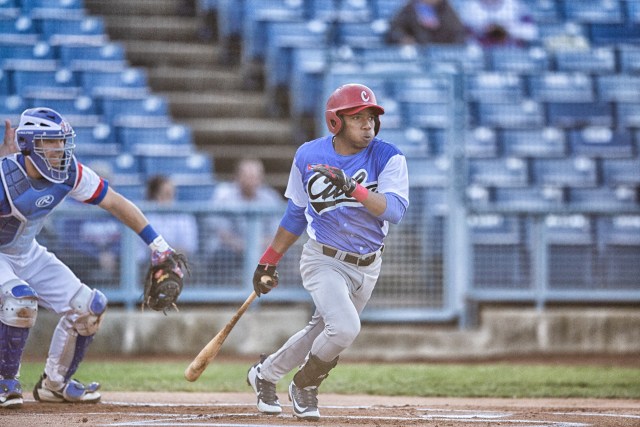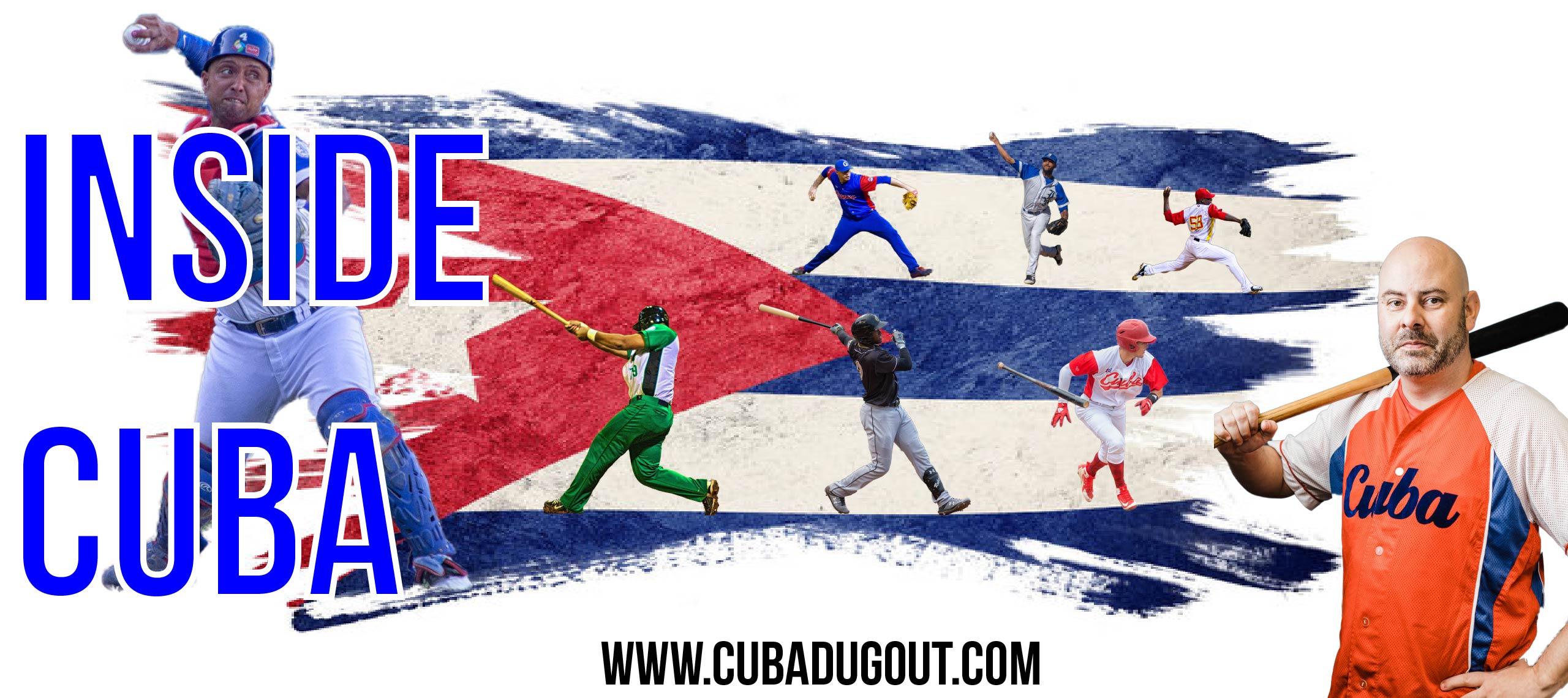I have never been a big fan of the Olympics. It’s grander appeal runs counter to the 162 game day in day out fandom of Major League Baseball. That doesn’t mean I don’t understand why so many do love it. You can tune in once every 4 years. You don’t have to worry about being a super fan. And there is allure in cheering for “amateur” athletes striving to be the best for the sake of pride & country. Full disclosure I don’t believe I have ever watched a full Olympic baseball game.

I began to do some research on baseball in the Olympics. I began to see that it has had as consistent a relationship as Billy Martin & George Steinbrenner. Both have since left us. Steinbrenner the long time owner of the Yankees hired Martin to manage the Yankees on five seperate occasions, each ending acrimoniously.
Baseball debuted in the 1904 Summer Olympics and as would often become the norm was more of an exhibition. First between the United States and the host nation or another prominent baseball country. It would dissapear and reappear frequently. This was until 1992 when Eight nations played an official tournament to crown the best in the world. This would be the format until it was again dropped after the 2008 competition. Baseball however, will once again return to the Olympics in Japan post Covid. The official date has yet to be determined, but the baseball qualifying event is now set for June 2021 in Florida.
If there was one relative constant it was Cuba’s dominance during this period. In the five modern competitions, Cuba captured Three Gold and Two Silver medals. Realistically Cuba was sending professional teams to face the best amateurs in the world. The 1992 squad alone could be the ballot for the Hall of Fame of the modern Cuban National Series. A lineup stocked with Antonio Pacheco, Omar Linares, Lourdes Gurriel, Victor Mesa, Orestes Kindelan. While future Major League pitchers Orland Hernandez, Osvaldo Fernandez & Rolando Arrojo anchored the pitching staff.
As a non-sequitor it is intriguing to see that the first wave of defections were almost exclusively pitchers. Where as since the mid-2000’s the greater percentage of impact players coming from Cuba have been batters.
Gold would follow in 1996, A silver in losing the final to the United States in 2000 and recapturing of gold in 2004. This was before a somewhat surprising second place finish to South Korea in 2008. The 1996 squad would see many of the familiar faces from 1992 return as would 2000. At this point many of the players were starting to show their age, but still gutted through to the silver as mentioned.
2004 would bring an almost complete roster refresh. Many of the names have since become household both in Cuba but also in the United States. This is where Yulieski Gourriel (now spelled Gurriel) and Alexei Ramirez (8 MLB seasons largely w WhiteSox) would first appear on the International radar. The rest save for Frederich Cepeda (more on him in a bit) would predominantly play their entire careers in the Cuban National Series.
The Olympics would begin to lose influence with the advent of the World Baseball Classic in 2006. Cuba would finish 2nd in the inaugural tournament, which would also prove to be their best finish to date. It is somewhat intriguing though that the last gold medal squad save for a few, didn’t erode due to defections. More likely the growth of the game globally or at least the media attention on international competitions such as the Olympics and the World Baseball Classic removed some of the mystery around Cuban players and made them more bonafide prospects.

The world wasn’t just opening up to Cuba but Cuba was opening up to the world. The players were increasingly seeing the rewards available if they were willing to risk getting off the island. The one carrot the government had to dangle, the pride of playing for country was starting to lose it’s lustre. The one control they had, policing defections was starting to erode with foreign parties willing to go to great lengths to facilitate players getting out. This human smuggling has been documented in a few high profile cases, Bart Hernandez The “agent” for WhiteSox star Jose Abreu would face federal indictment on Human Trafficking charges. Many players would retell similar tales of being extorted of their future earnings all just to get out.
Many of these players of course have gone on to very successful Major League Careers. Some have played in other professional and semi-pro leagues around the world. Even more have faded into obscurity. Increasing numbers of Cuban baseball players are no longer content to play their entire career in and for Cuba. Stuck making the equivalent of a civil servant with a few extra perks when a bounty of riches could be just a few swings away.
That 2004 squad did feature at least one player who as mentioned would play the majority of his career in the Cuban National Series. Frederich Cepeda recently recorded his 2,000 CNS hit. This paired with his 300 Plus Home Runs makes him one of only four Cuban National Series stars to do so. The frequent tweaks to the structure of the series might also mean, Cepeda might be the last of a generation whose numbers really mean anything. Cepeda would also spend parts of multiple seasons with the Yomiuri Giants and playing in Mexico. Anecdotally I have heard he does get to keep a larger proportion of his professional earnings than one might expect. Increasing number of Cuban players are being granted permission to follow this path and also return to play in Cuba.
Cepeda at 39 was recently called on to play a key role for the Cuban team in the WBSC Premier 12. The tournament that would award two 2020 Olympic berths. Cuba would not advance past the initial round, losing games to Canada & Korea. They were shut out in both and just squeaked past Australia in extra innings as not to go 0–3. It isn’t completely Cepeda’s fault, although he did go 0 for 9. Cepeda was actually closer in age to the rest of the lineup than he was far. The Cuban lineup vs Canada average 34 years of age and hit a collective .163 while anemically slugging the identical number.
This combined with underwhelming results in the PanAmerican games, the Caribbean Series and recent tours of the independent CanAm league shine a spotlight on a glaring problem for Cuba. Baseball players hit their physical prime between 27 & 31 years of age. Most of these Cuban players are not wearing their home countries uniform anymore little yet as part of the Olympics.
The proposed deal between Cuba and MLB to finally legalize players coming to the United States would have resembled the agreement Japan has with American professional baseball. The deal would have seen players over the age of 25 with at least six years of Cuban National Series experience become eligible to negotiate with interested Major League Organizations. Twenty-Five percent of their contract would go back to the Cuban Federation with a mandate for that money to be spent on baseball programming and infrastructure.
This would obviously stem the tide of defections. Create a clearer path to the big show, also perhaps making fringe prospects consider staying in Cuba. It would put money back into Cuban baseball and give the National team access to to their top players in International competition closer to their peak. It would also open the door for professionals to repatriate in the World Baseball Classic.
